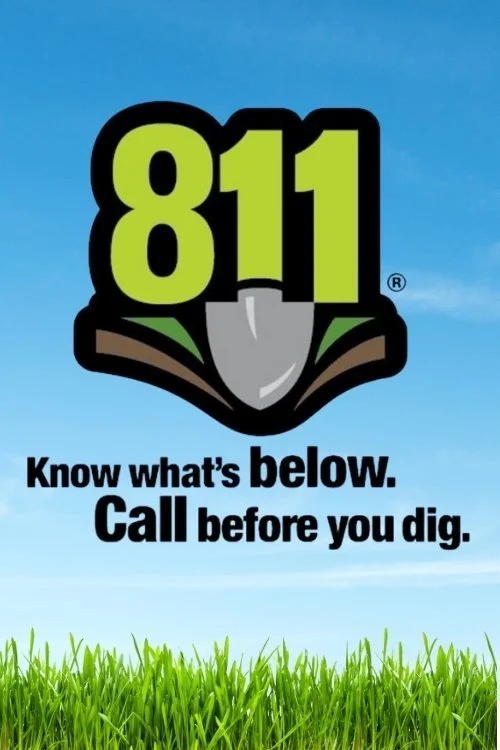Safe Demolition Practices: Avoiding Surprises Under the Ground
Demolition Is More Than Knocking Things Down
At first glance, demolition looks easy: tear down, haul away, and move on. But experienced builders know it’s not that simple. The real danger is often what you can’t see—underground utilities, hidden tanks, or unstable soil.
At Larry Cook Construction, we put safety first. That means utility checks, site preparation, and smart planning before any work begins. Whether you’re a Kansas homeowner taking down a shed or a business preparing land for a new build, knowing the basics of safe demolition can help save you stress, money, and time.
Why Safe Demolition Matters
Safe demolition is about more than speed. It protects people, property, and the environment. One wrong move, like hitting an unmarked gas line, can cause injury, damage, or even lawsuits.
Done right, safe demolition helps you:
Keep workers and homeowners safe.
Protect utilities and avoid service disruptions.
Handle hazards like asbestos or contaminated soil the right way.
Stay on budget and on schedule.
The takeaway? Safe demolition = successful demolition.
The Hidden Risks Below Ground
Kansas demolition sites often hide surprises. Some of the most common include:
Utility lines – gas, electric, water, sewer, or telecom.
Underground tanks – old septic or fuel tanks, especially in rural areas.
Contaminated soil – common near old factories or farms.
Leftover foundations – concrete, rubble, or brick from past structures.
Unstable soil – grading issues that can lead to erosion or poor drainage.
Spotting these risks early prevents accidents and costly delays.
Utility Safety: Your First Priority
If you take one step before any demolition project, let it be this: call 811.
The free “Call Before You Dig” service is required by law. A utility crew will come out and mark underground lines on your property. Skipping this step is not only dangerous, it’s illegal.
Beyond 811, here’s what to keep in mind:
Hire pros for disconnections. Only licensed providers should cap gas, water, sewer, or electric lines.
Check markings. Spray paint or flags can fade, so confirm line locations before digging.
When in doubt, assume live. If you’re unsure, don’t take the risk.
At Larry Cook Construction, we never start demolition until all utilities are safely disconnected and confirmed.
Permits and Legal Requirements in Kansas
Every Kansas city and county has its own rules for demolition. Some require multiple documents before work begins.
Most Kansas communities will ask for:
A demolition permit application from the local building department.
Proof of utility shutoffs.
A debris disposal or recycling plan.
Asbestos testing and removal for older structures.
Skipping permits isn’t worth it. Fines, delays, or even liability for accidents can follow. Whether you’re in Wichita, Topeka, or a small town, always check local rules before you start.
Site Preparation in Kansas
Demolition is step one. Proper site preparation ensures your new build will be safe and lasting.
In Kansas, site prep usually means:
Dirt work and grading: Leveling the ground and ensuring proper drainage.
Soil evaluation: Clay-heavy soil can trap water, while sandy soil may erode.
Weather prep: Fall rains in Kansas make excavation muddy and unstable.
Access planning: Making sure equipment can get in and out without damage.
Larry Cook Construction provides excavation, grading, and dirt work services so your site is ready for its next phase.
Want to dig a little deeper?
This blog covers the basics of land grading and how it sets the stage for strong, long-lasting construction.
Check it out here:
The Basics of Land Grading for Drainage and Construction Prep
DIY-Friendly Demolition Tips
Not all demolition jobs need heavy equipment. If you’re a DIYer tackling a shed, deck, or small garage, here’s how to help keep it safe:
Plan ahead. Decide what’s staying and what’s going. Take photos before you start.
Wear the right gear. Gloves, goggles, boots, and a dust mask are non-negotiable.
Disconnect everything. Even small sheds may have power or water.
Start at the top. Work roof-down to avoid sudden collapses.
Sort materials. Recycle concrete, wood, or metal when possible.
Know your dump site. Many Kansas counties regulate where debris can go.
If the project is bigger, involves utilities, or requires machinery—don’t risk it. Call in the pros.
When to Call the Pros
DIY can be fun, but it’s not always safe. Bring in a licensed contractor if:
The building is larger than a shed or small garage.
Utilities are unknown or active.
There may be asbestos or other hazards.
Heavy machinery is required.
You’re unsure about permits.
Professionals like Larry Cook Construction handle these challenges daily, helping keep your project safe.
Waste Disposal and Recycling
Kansas regulates how demolition debris is handled. Rules vary by county.
At Larry Cook Construction, we manage debris responsibly by:
Sorting and recycling materials like concrete and metal.
Hauling debris to licensed facilities.
Handling hazardous waste safely.
Not sure what your town allows? Call your city’s building department before disposal.
Seasonal Considerations: October in Kansas
Safe demolition is a year-round job, but October adds a few wrinkles:
Rain and mud: Fall storms can slow excavation.
Shorter days: Less daylight means planning is key.
Cooler temps: Good for crews, but curing and compaction can take longer.
Still, fall is a smart time to clear old structures and prep for spring construction.
Wrapping It Up
Safe demolition is about planning, safety, and smart prep. Whether you’re a DIY homeowner or a business planning a big project, checking utilities, getting permits, and disposing of waste correctly are key.
At Larry Cook Construction, we handle demolition, excavation, grading, and site prep across Kansas—so your project starts strong and ends safe.
FAQs About Safe Demolition in Kansas
-
Yes, most Kansas towns require one—even for smaller jobs.
-
Always get written proof from your provider.
-
It depends on your county. Some allow clean concrete; others don’t.
-
Yes, even fence posts can hit buried lines.
-
It varies by soil, grading needs, and project size. Larry Cook Construction can give you a timeline.

